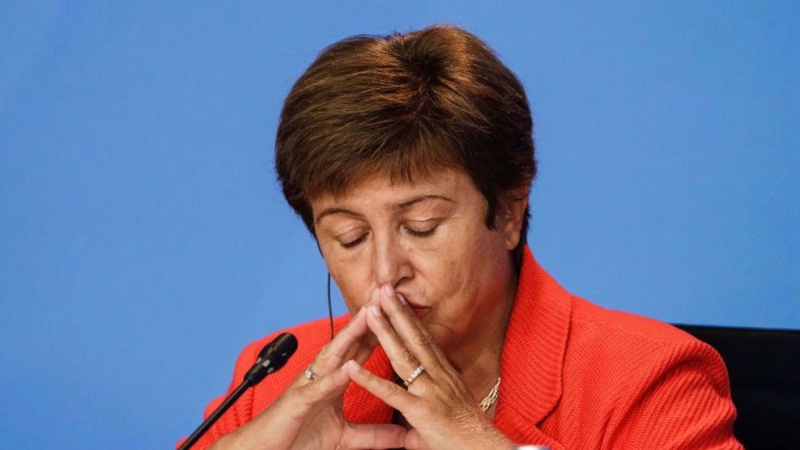IMF chief warns of darker global outlook and higher recession risk
IMF Managing Director Kristalina Georgieva has sounded the alarm regarding the "darkening" global outlook, warning world leaders that the global economy was headed towards a recession if instability continued.
Georgieva on Thursday cited the problems caused by the COVID-19 pandemic, Russia's military operation in Ukraine and climate disasters on all continents, collectively attributing to global financial instability, warning that the current dire economic situation could will get worse.
She said that a “fundamental shift” away from relative stability has plunged the world into financial instability, increasing the risks of recession.
"We are experiencing a fundamental shift in the global economy, from a world of relative predictability ... to a world with more fragility, greater uncertainty, higher economic volatility, geopolitical confrontations, and more frequent and devastating natural disasters," she wrote in the text of a speech delivered at Georgetown University.
Georgieva said the old order, characterized by low interest rates and low inflation, was being replaced with an uncertain situation in which "any country can be thrown off course more easily and more often."
She said the world's largest economies, namely, China, the United States and Europe, were now slowing down their economic activities, which in turn was decreasing the exports from emerging and developing countries to these states.
With high energy prices weighing on growth, COVID disruptions in China, slowing momentum in the US economy and higher interest rates from big central banks, she said the risks were mounting for economic activity around the world.
The IMF would lower its 2023 growth forecast from 2.9 percent, its fourth downward revision this year, when it releases its World Economic Outlook next week, Georgieva said. The global lender would leave its current forecast for 3.2 percent growth in 2022 unchanged, she said, and gave no number for the new 2023 forecast.
Overall, the IMF expects global output to shrink by $4 trillion between now and 2026. That is roughly the size of the German economy and amounts to a "massive setback," she added. Georgieva pointed out as a result of the economic slowdown, the situation would get worse in countries which were already under pressure due to soaring food and energy prices.
SS



